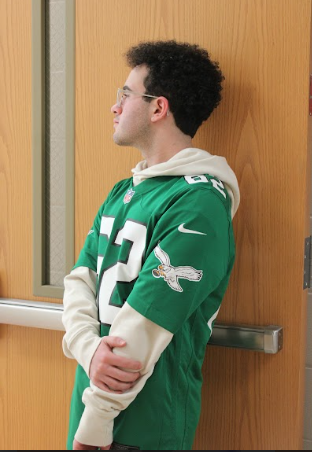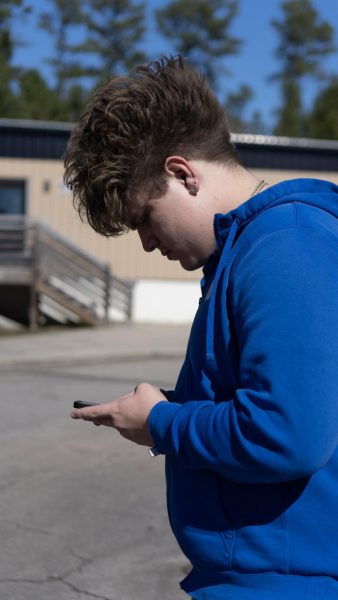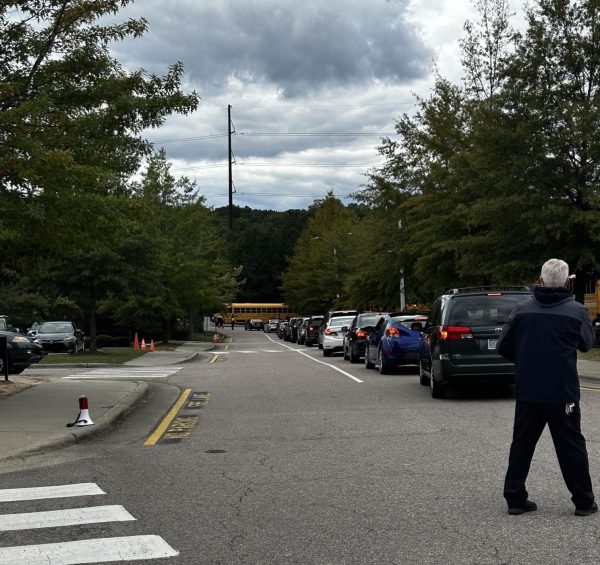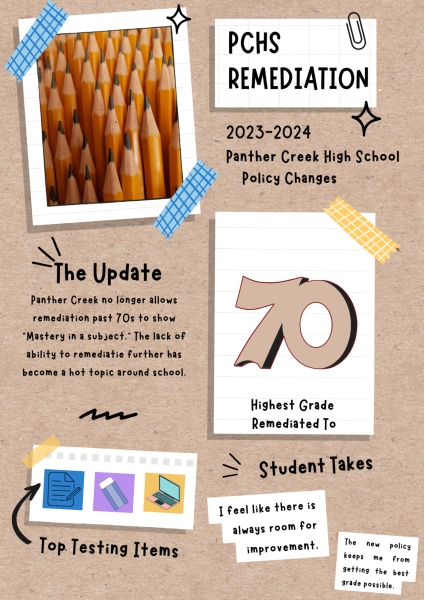Media Madness!
 Social media has become a staple in most teenagers’ everyday lives. With the advancement of technology, access to the Internet is right at our fingertips, literally. Young adults spend copious amounts of hours using social media on their cell phones every week, and every day. The real question is: has social media played a positive role for this generation? PCNN went out to determine Panther Creek students’ opinions on the matter.
Social media has become a staple in most teenagers’ everyday lives. With the advancement of technology, access to the Internet is right at our fingertips, literally. Young adults spend copious amounts of hours using social media on their cell phones every week, and every day. The real question is: has social media played a positive role for this generation? PCNN went out to determine Panther Creek students’ opinions on the matter.
Social networks have the power to spread information faster than any other resource available. According to The Pew Research Center, 74% of people online are using some kind of social media. This is a majority of internet users, and each plays a role in spreading information. Whether it’s breaking news from a certified source, or an opinion on a certain event, hundreds of thousands of people can access it with a tap of their finger. People with similar interests can connect on different matters through the Internet and bond with one another. “I think it’s been more beneficial because it’s a fast way to connect with people, that way you can get in touch with friends and also meet new people through it,” said freshman Teddy Sarian. When Mr. Kasapidis, an art teacher, was asked about his thoughts on the growth of teen’s dependency on the Internet, he said, “I think it has been beneficial because you can find information instantly, but then again finding that information instantly can set people in a panic.” By this, he means that certain information can be blown out of proportion and cause people to interpret it incorrectly. For example, when a person in North Carolina was taken in as a possible ebola patient, everyone started to panic thinking they were going to get it. But it turns out the patient did not have the disease and there was no case in the state. Social media makes it easy to share a skewed view of news.
The majority of the feedback has been positive, but some think online networks have had a negative effect on this generation. “Social media has been more detrimental to our society. Because now people have somewhere where they can see what everybody is doing all the time. It causes a lot of drama that isn’t necessary, and [can also] link everybody to something they’re not supposed to be involved in,” said junior Priscilla Zhou. In this way, social media has drastically modified traditional communication. “Likes” and “favorites” have replaced verbal compliments and teenagers feel more comfortable talking behind a screen than in person.
Many feel that a sense of therapy can also be found on social media. To some, it’s just a way to talk to their friends. To others, it’s an outlet to talk about their problems or to reminisce on memories. In fact, research confirms this: CCI researcher Theresa Sauter studied the way social networking sites can be a form of self-therapy. “For users, it can become a therapeutic tool that helps them to discover how they feel and how they can improve themselves,” she said. Earlier this school year, a beloved student at Panther Creek passed away. As soon as the news spread, the student body instantly flooded social media with encouraging thoughts, pictures,and prayers for the situation. People sought comfort and positivity during the rough time, and that’s what they received.
The overall effect of social media has been huge to this generation. To some it’s been helpful and to others it’s been detrimental to society. Social media is a way to connect with peers, discover news around your area, and look back at old memories. So much can be done with it and it’s up to you to decide how to use it.









